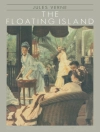In ‘Doctor Hudson’s Secret Journal, ‘ Lloyd C. Douglas crafts a rich narrative that intertwines medical ethics, psychological depth, and the complexities of human relationships against the backdrop of early 20th-century America. The book is presented as a journal, offering an intimate glimpse into the life of Dr. Hudson, who grapples with the moral dilemmas of a physician while navigating personal struggles. Douglas employs a blend of straightforward prose and introspective reflection, evoking a sense of nostalgia and moral inquiry that resonates with contemporary readers, thus situating the novel within the broader context of the American literary tradition that seeks to explore the human condition. Lloyd C. Douglas, an ordained minister and a practicing physician, draws from his own life experiences as both healer and spiritual guide. His dual perspective lends authenticity to the narrative, as he delves into the ethical complexities faced by medical professionals while drawing on the philosophical inquiries that underpin his theological background. This fusion of medicine and spirituality encourages readers to reflect on their own beliefs and values in the face of moral ambiguity. This poignant novel is highly recommended for readers interested in exploring the intricacies of ethical decision-making and the profound impact of personal choice. Douglas’s work not only entertains but also challenges us to consider what it means to be a compassionate being in a world rife with dilemmas.
A propos de l’auteur
Lloyd Cassel Douglas (1877–1951), most commonly known as Lloyd C. Douglas, stands as a prominent figure in American literature, especially noted for his inspirational and thought-provoking novels. Before becoming an author, Douglas upheld a career in the ministry, serving as a Lutheran pastor, which significantly influenced the moral and spiritual themes prevalent in his writing. He transitioned to a full-time author in the mid-1920s, after his sermon titled ‘Forgive Us Our Trespasses’ garnered widespread attention and encouraged him to pursue writing. Douglas is best known for his ability to intertwinally human emotion and ethical considerations, a skill that is deftly manifested in his 1941 novel ‘Doctor Hudson’s Secret Journal.’ This book is particularly illustrative of Douglas’s literary style as it explores the life of a compassionate physician wrestling with the moral obligations of his profession and his personal desires. As a writer, Douglas often focused on the trials and inner conflicts of his protagonists, making his works a deep study of character and human nature. Over the span of his career, he penned several bestsellers, including ‘Magnificent Obsession’ (1929) and ‘The Robe’ (1942), the latter of which was adapted into an Academy Award-winning film. Lloyd C. Douglas’s work remains a testament to his understanding of humanity and his capability to blend storytelling with life’s profound questions.












